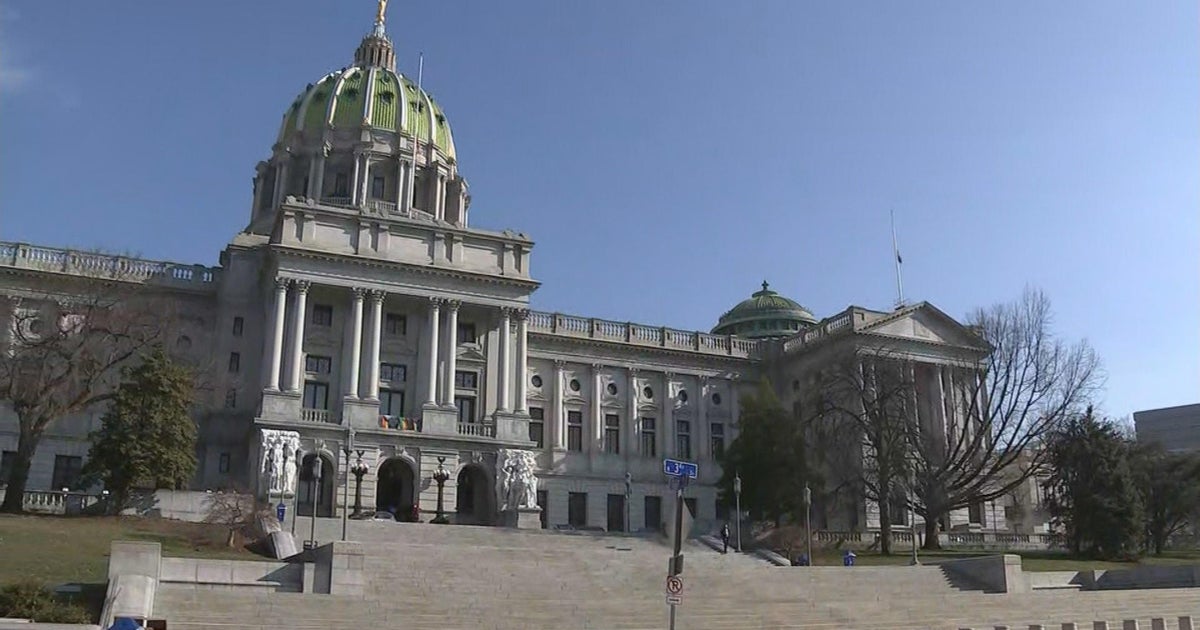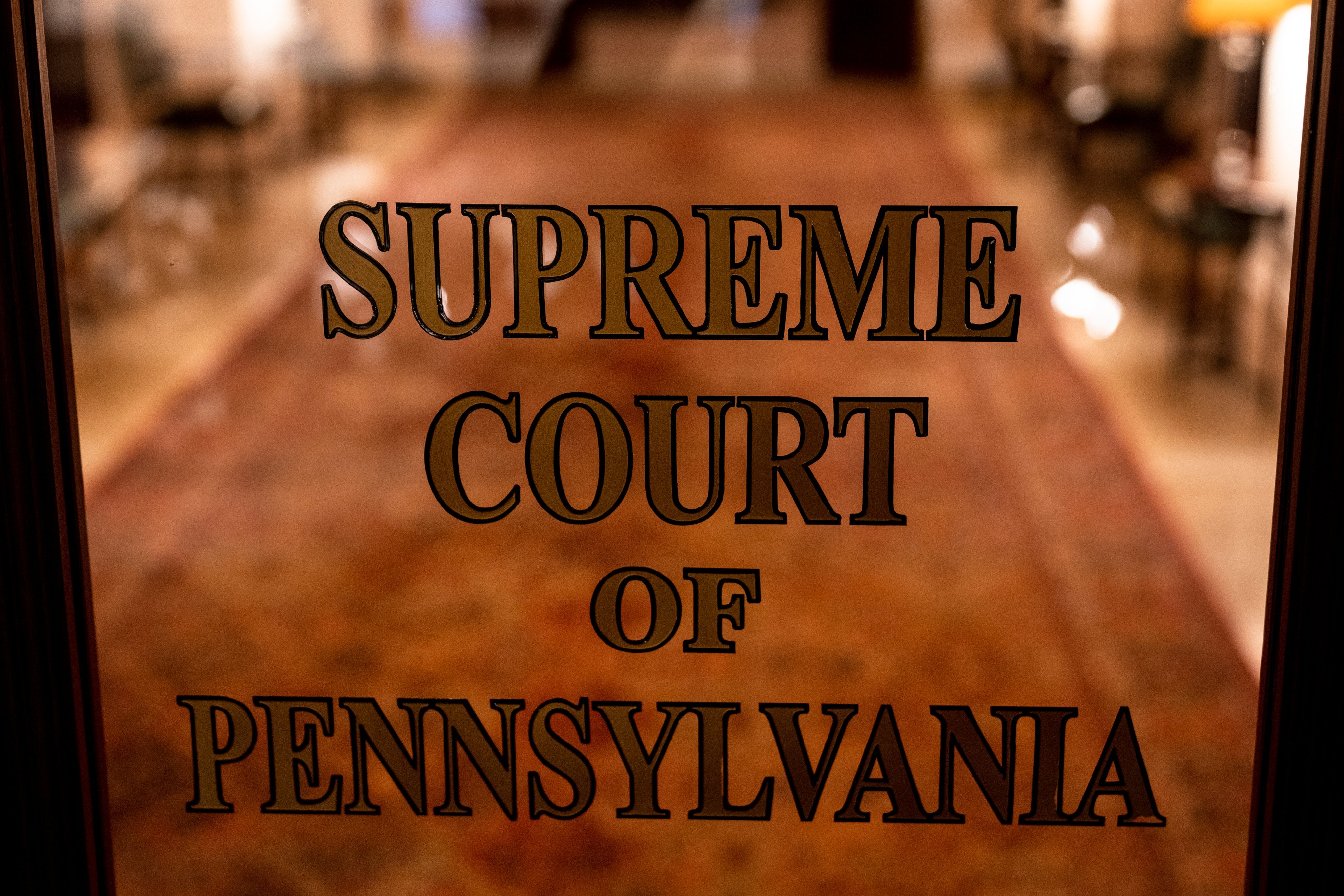What questions do you have about the 2025 elections? What major issues do you want candidates to address? Let us know.
While the intensity of the 2024 election cycle may be in the rearview mirror, the May 2025 primary election will give Pennsylvanians the opportunity to vote in judicial elections.
Judiciary elections traditionally don’t get the same attention as races for governor and federal offices, but these elections carry significant implications for the state’s legal landscape, affecting decisions on civil rights, criminal justice and the state’s authority.
Pennsylvania is also one of only eight states that determine the makeup of its courts through partisan races, whereas in most states, the governor appoints justices or they are determined through nonpartisan elections.
The Pennsylvania judiciary is structured into three main appellate courts: Commonwealth Court, Superior Court and Supreme Court.
Commonwealth Court
The Pennsylvania Commonwealth Court is unique among American courts as it handles disputes specifically involving government and regulatory matters. Its jurisdiction includes appeals from state agency decisions, cases regarding election law, and lawsuits against state and local governments.
The court has handed down significant rulings in recent years, including a 2023 decision finding Pennsylvania’s education funding system unconstitutional for failing to serve poorer school districts. Last year, the court ruled that mail-in ballots should not be disqualified for missing dates — a decision later overturned by the Pennsylvania Supreme Court. More recently, the court ruled that communications between state lawmakers and lobbyists could remain confidential, impacting transparency in government.
The court currently comprises five Republican judges and three Democratic judges, with one seat left open by the retirement of Democrat Ellen Ceisler. Two candidates — Matthew Wolford and Joshua Prince — are vying for the Republican nomination, for which the primary will be held on May 20. The winner will likely face off against Democrat Stella Tsai in November.
Matthew Wolford
Matthew Wolford is an environmental law specialist based in Erie, where he runs a solo practice focused on regulatory challenges, property rights disputes, and defending clients against government enforcement actions. His background includes serving as an attorney for the Pennsylvania Department of Environmental Protection and as a deputy state attorney general overseeing environmental crimes. Wolford also worked as a special prosecutor for both the state attorney general’s office and the U.S. Attorney for the Western District of Pennsylvania.
Wolford was endorsed by the Pennsylvania Republican Party.
Joshua Prince
Joshua Prince is a Berks County-based attorney specializing in gun rights litigation who has sued Harrisburg and the state over gun restrictions. Prince previously ran for Commonwealth Court in 2023, although he was not successful. His campaign is endorsed by conservative Republican lawmakers including U.S. Representative Ryan McKenzie, county sheriffs, and gun rights groups, including Firearms Owners Against Crime. Prince initially withdrew after he failed to get the state party endorsement but later reentered the race.
Stella Tsai
Tsai currently serves on the Philadelphia’s Court of Common Pleas, where she has presided over criminal, civil, family and orphans’ court cases since her appointment in 2016. Tsai’s background includes a stint as chair of administrative law in Philadelphia’s law department, where she oversaw child welfare and social services attorneys from 2000 to 2003. She later became a business litigation partner at Archer & Greiner, focusing on regulatory compliance, land use, and ethics.
Tsai has a long history of advocacy for voting rights, immigrant rights and civil rights. She previously served as president of the Asian Pacific American Bar Association of Pennsylvania and held various roles within the Pennsylvania Bar Association. She has been endorsed by the Pennsylvania Democratic Committee.
Superior Court
The 15-judge Pennsylvania Superior Court is the primary appellate court for most criminal and civil matters with recent decisions highlighting its impact on issues such as the validity of criminal convictions and labor and civil cases.
For example, the court recently upheld a conviction for attempted murder against a man who appealed his case on the grounds that he changed his mind before going through with it. In January, the court upheld a $7 million medical malpractice verdict in a suit in which a patient accused a medical provider of failing to timely diagnose his cancer.
The court has one open seat following Justice Dan McCaffery’s election to the Supreme Court in 2023. Candidates vying for the open seat include two Republicans, Maria Battista and Ann Marie Wheatcraft, who will compete in the primary on May 20. The winner will likely face off against Brandon Neuman, the only Democrat running.
Maria Battista
Battista was a court nominee in 2023. She has since worked for The Judge Group, a professional services agency. A native of Knox, Pennsylvania, Battista has served as an assistant district attorney in both Venango and Franklin counties, and has held counsel positions in the Pennsylvania Departments of Health and State and was a contract specialist with the U.S. Department of Defense.
In addition to her law degree from Ohio Northern University, she holds a doctorate in education from the University of Pittsburgh. Battista’s campaign emphasizes her extensive experience in civil, criminal, and administrative law, and her commitment to an “efficient, accountable, and transparent” judiciary.
Ann Marie Wheatcraft
Wheatcraft is the president judge of the Chester County Court of Common Pleas, on which she has served since 2012.
As a judge, Wheatcraft has presided over a variety of cases encompassing criminal, civil, family and dependency courts. She helped develop and supervise Chester County’s treatment courts, which address issues related to drug addiction, mental health, and veterans’ affairs. She also implemented the introduction of comfort dogs into courtrooms to help ease the stress of vulnerable participants, particularly children.
Before her judicial appointment, Wheatcraft served as Assistant District Attorney in Chester County for 10 years. She is a past president of the Pennsylvania Association of Trial Court Professionals and serves on its executive board. Her academic credentials include an undergraduate degree from Penn State University, and she received her law degree from the University of New Hampshire School of Law.
Brandon Neuman
Neuman has served as a judge on the Washington County Court of Common Pleas since 2018, overseeing civil court proceedings as well as the county’s veteran’s specialty court. His judicial experience also includes presiding over criminal and family law cases, reflecting a broad understanding of the legal system.
In a notable 2024 ruling, Neuman ordered Washington County to notify voters if their mail ballots contained errors that could prevent them from being counted, a decision that was upheld by successive higher courts.
Before his tenure on the bench, Neuman represented Washington County in the Pennsylvania House of Representatives from 2011 to 2017. There he worked for passage of a 2015 law aimed at expediting the processing of rape kits, a response to a significant backlog that had hindered justice for survivors across the state.
Neuman’s educational background includes a bachelor’s degree in criminal justice from the University of Richmond, a master’s degree from the University of Pittsburgh School of Law, and a juris doctor from Duquesne University School of Law. Before entering public service, he practiced law in complex civil litigation and advocated for victims of nursing home neglect and abuse.


































